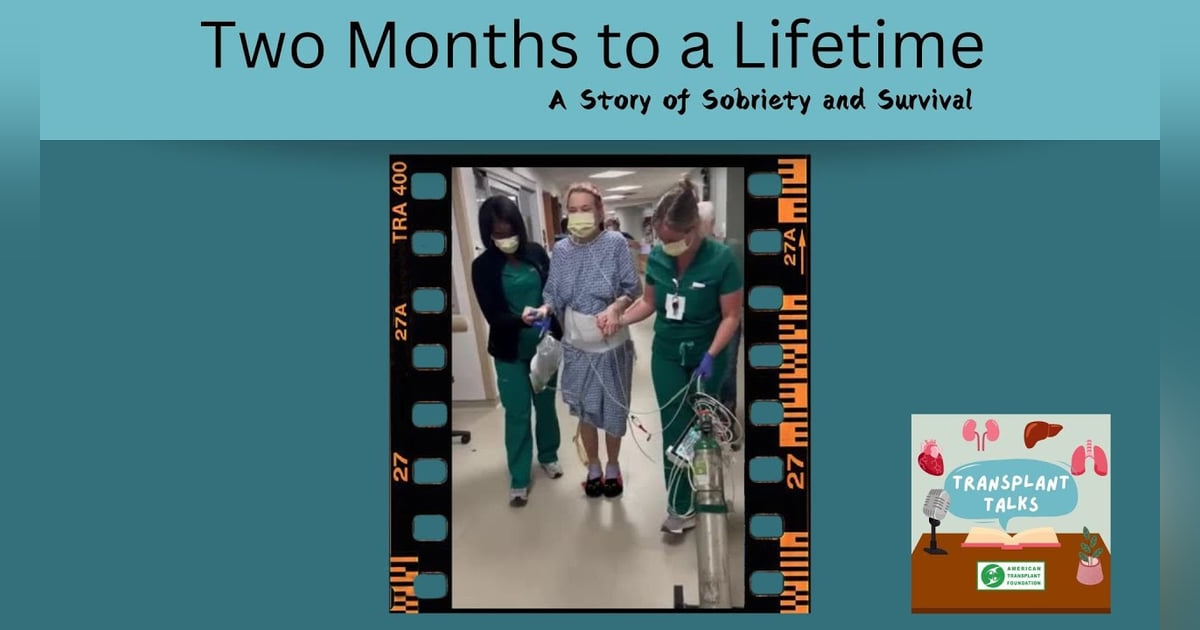Two Months to a Lifetime: a Story of Sobriety and Survival

Emma is 31 years old and a native of Florida. She had worked as a bar manager for most of her adult life. She describes, “I always was too enthusiastic of a drinker and drank more than my friends,” but things got worse during COVID. It was difficult to be home for months, and she found herself just doing shot after shot all day. After COVID, she quit drinking on and off but kept falling back into binge drinking. She would drink around the clock, get very sick, and then stop for a bit. She started having symptoms of liver disease but didn’t really know much about this and convinced herself they were “normal,” even when she started turning yellow, couldn’t stop vomiting, and became so confused she couldn’t do her job. She finally went to the emergency room when she was having trouble breathing. Her oxygen saturation was 54%, which is dangerously low, and she had a bloodstream infection, basically on the brink of death. She was told her only chance of survival was a liver transplant, and she didn’t leave the hospital until this happened. Her team at @tampageneralhospital took a chance on her because it’s still not common to do transplants in people who don’t have an extended period of sobriety – Emma had less than two months.
Emma didn’t have a lot of (or any) time to learn new coping strategies. She found the help of her therapist, support groups, and a recovery app invaluable. “I never thought about drinking again. It was kind of like a switch flipped.” She immediately started doing advocacy work while she was recovering and is now a mentor with the American Transplant Foundation, an advocate for the American Liver Foundation, and an Ambassador for UNOS. She is determined to fight the stigma and raise awareness so people don’t have to suffer alone or feel such immense shame, like she did. She has been writing back and forth with her donor’s family, and they are planning to meet. She feels immense gratitude for her young donor but also guilt. She manages all the uncertainty of having a transplant by noticing what she can do instead of can’t do.
“My life is so full now…now I don’t do anything that doesn’t make my life feel full.”
@americantransplant
Check out this list of recovery resources that she compiled: https://linktr.ee/elillibridge?fbclid=PAZXh0bgNhZW0CMTEAAab5o2lL1-cdFYPQRMJy3Ns9mqsAwlOcsY8lJiFlPvzsTFlRLeEhRxz8mY_aem_KmL_bcgC7DHIzg1YvsnELg
Also listen on Spotify or Apple Podcasts: https://open.spotify.com/show/6yPv16c6bl9Al4oYs6Iqih?si=0db7c872ef9c42a2
https://podcasts.apple.com/us/podcast/transplant-talks/id1775090608
For more information on organ transplantation: https://www.americantransplantfoundation.org www.livingliverdonation.com
Follow us on social media:
https://www.instagram.com/american_transplant_foundation/ https://www.facebook.com/AmericanTransplantFoundation/ https://www.tiktok.com/@americantransplant https://x.com/amertransplant